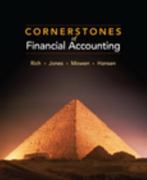Answered step by step
Verified Expert Solution
Question
1 Approved Answer
3. value: 20.00 points Problem 10-4 A coupon bond paying semiannual interest is reported as having an ask price of 127% of its $1,000 par


3. value: 20.00 points Problem 10-4 A coupon bond paying semiannual interest is reported as having an ask price of 127% of its $1,000 par value. If the last interest payment was made one month ago and the coupon rate is 7%, what is the invoice price of the bond? (Do not round intermediate calculations. Round your answer to 2 decimal places.) Invoice price $ Problem 10-44 A newly issued bond pays its coupons once a year. Its coupon rate is 4.4%, its maturity is 15 years, and its yield to maturity is 7.4%. a. Find the holding-period return for a one-year investment period if the bond is selling at a yield to maturity of 6.4% by the end of the year. (Do not round intermediate calculations. Round your answer to 2 decimal places.) Holding-period return % b. If you sell the bond after one year when its yield is 6.4%, what taxes will you owe if the tax rate on interest income is 40% and the tax rate on capital gains income is 30%? The bond is subject to original-issue discount (OID) tax treatment. (Do not round intermediate calculations. Round your answers to 2 decimal places.) $ Tax on interest income Tax on capital gain Total taxes S S c. What is the after-tax holding-period return on the bond? (Do not round intermediate calculations. Round your answer to 2 decimal places.) After-tax holding-period return % d. Find the realized compound yield before taxes for a two-year holding period, assuming that (1) you sell the bond after two years, (ii) the bond yield is 6.4% at the end of the second year, and (w) the coupon can be reinvested for one year at a 2.4% interest rate. (Do not round intermediate calculations. Round your answer to 2 decimal places.) Realized compound yield before taxes % e. Use the tax rates in part (b) to compute the after-tax two-year realized compound yield. Remember to take account of OID tax rules. (Do not round intermediate calculations. Round your answer to 2 decimal places.) % After-tax two-year realized compound yield
Step by Step Solution
There are 3 Steps involved in it
Step: 1

Get Instant Access to Expert-Tailored Solutions
See step-by-step solutions with expert insights and AI powered tools for academic success
Step: 2

Step: 3

Ace Your Homework with AI
Get the answers you need in no time with our AI-driven, step-by-step assistance
Get Started


